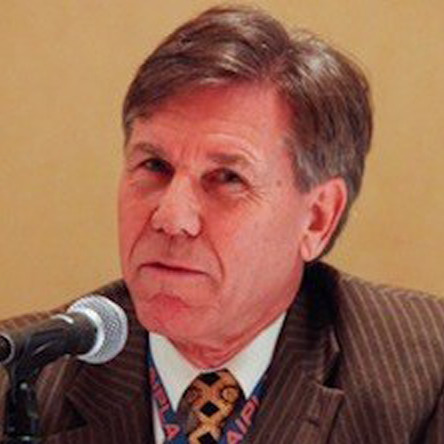The Federal Circuit Owes Judge Newman an Apology
“I would urge the Federal Circuit to refrain from releasing medical speculation and other open assertions violative of basic privacy rights…. Judges, above all other responsibilities, must respect and defend individual rights, including medical privacy.”
As one of the three Chief Judges to follow Chief Judge Michel, I commend his thoughtful and thorough analysis of the embarrassing and damaging petition challenging Judge Pauline Newman’s competency and compliance with Judicial Council orders. I would guess that all of those Chief Judges, including me, dealt with delicate issues involving aging colleagues, yet these occasions did not engender vast controversy and violations of medical privacy. I wished to add just a few thoughts from my perspective.
Shortly after learning of the petition questioning Judge Newman’s competence, I called her directly. We spoke of old memories and new developments, old cases and new cases, doctrinal divisions and directions at the Federal Circuit. In sum, within five minutes, I could easily and confidently assess that Judge Newman was as mentally sharp and capable as she had been for more than 40 years that I have known her well. Indeed, since that conversation, we have spoken at least once a week at all times of the day and evening. In all of those conversations, including a couple of in person meetings, I have not detected the slightest slippage in her mental acuity. Judge Newman’s current colleagues must have the same opportunities to assess for themselves her abilities. Thus, this prolonged proceeding, especially in the face of her entirely successful cognitive medical examination, becomes even more puzzling.
A Neutral Court Would Be Good. An Apology Would Be Better.
In recent weeks, perhaps in response to Judge Newman’s successful cognitive examination with a medical professional, the court has shifted to faulting Judge Newman for failing to comply with directions from the other judges and the committee appointed by the Chief Judge (and including the Chief Judge) to adjudicate Judge Newman’s fitness to serve. In our American judicial system, we pride ourselves on our commitment to judicial independence. Almost by definition, judicial independence means that our judicial system encourages individualism in both decision-making and the procedure underlying those decisions. Again, almost by definition, judicial independence means that judges, even a majority of judges, should not attempt to compel an individual judge to follow a prescribed course. In sum, a group of judges should recognize that giving orders and directions to a judicial colleague fails to fully respect both their individual colleague and the overarching principle of judicial independence. As is often the case with the “great dissenter,” Judge Newman has chosen her own path to demonstrate her competence and to address her colleagues’ concerns; once again she should be applauded for her independence, not castigated and not subjected to further pressure from the majority.
As Judge Michel notes, this case would be more fairly adjudicated in another court whose only motivation would be to protect the public performance and image of the federal judiciary. The district court’s suggestion of a mediator might also provide the neutrality and perspective necessary for a fair resolution. I might suggest, however, that the better outcome would be a few face-saving procedures to permit the court to say it has addressed the petition followed by a unanimous rejection of the petition as contrary to Judge Newman’s demonstrated competence.
By the way, in the course of those face-saving proceedings, I would urge the Federal Circuit to refrain from releasing medical speculation and other open assertions violative of basic privacy rights. Nothing is more unseemly than the release of accusations about private medical conditions, especially when other facts contradict and impeach those charges. Judges, above all other responsibilities, must respect and defend individual rights, including medical privacy. Moreover, if the court sees the wisdom of taking the most expeditious approach of rejecting the petition, the court should at that time take the opportunity to apologize to Judge Newman for compromising her privacy rights.
In the meantime, the court’s reputation continues to hemorrhage. It is time for the court to stop the bleeding and to welcome its most senior judge back to her revered place at head of the other judges.
Editor’s note: this article was updated with additional commentary from Judge Rader on July 12 at 7:27PM.
Randall Rader
Randall R. Rader was appointed to the United States Court of Appeals for the Federal Circuit by President George H. W. Bush in 1990 and assumed the duties of Chief […see more]






